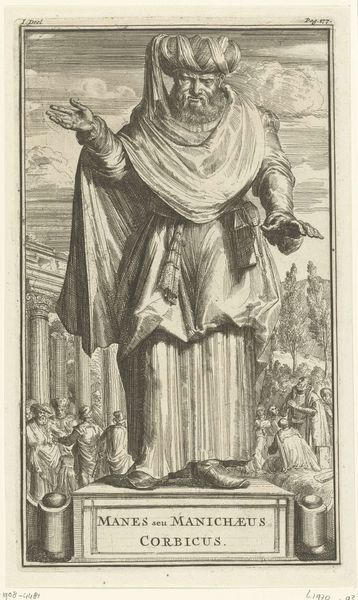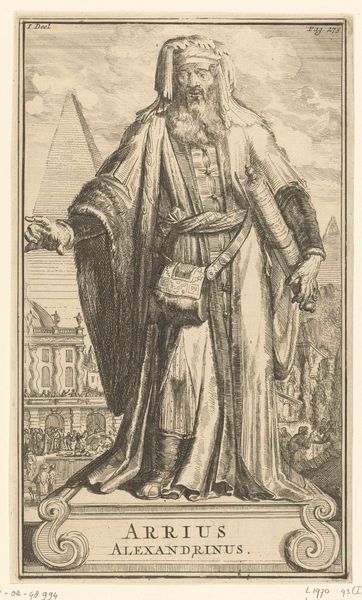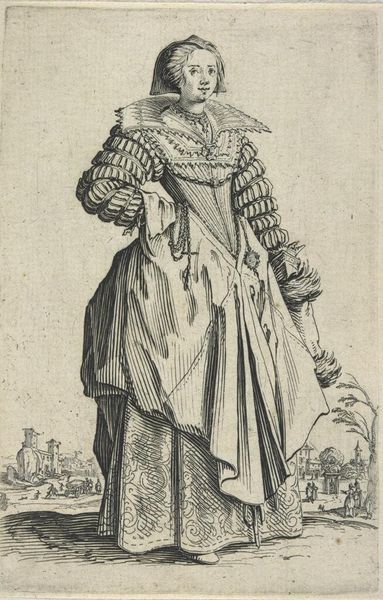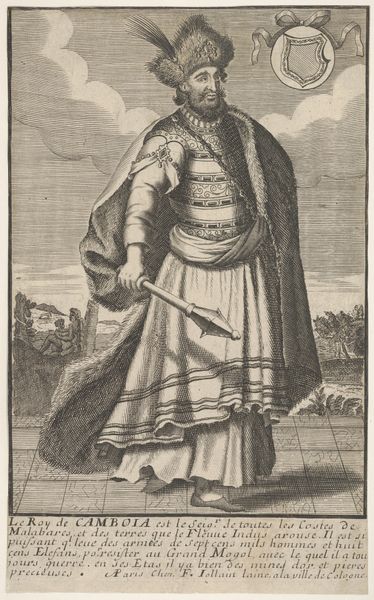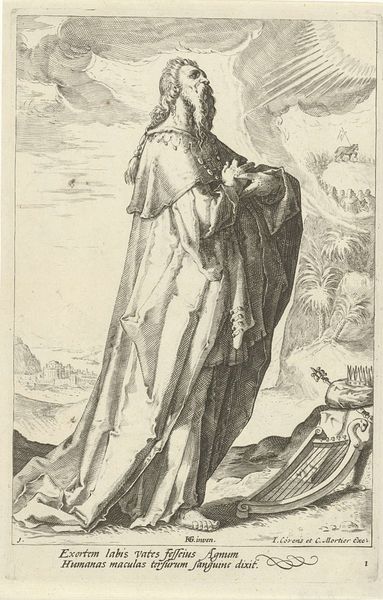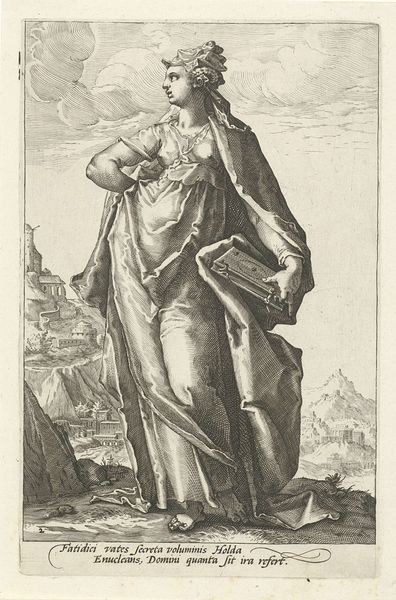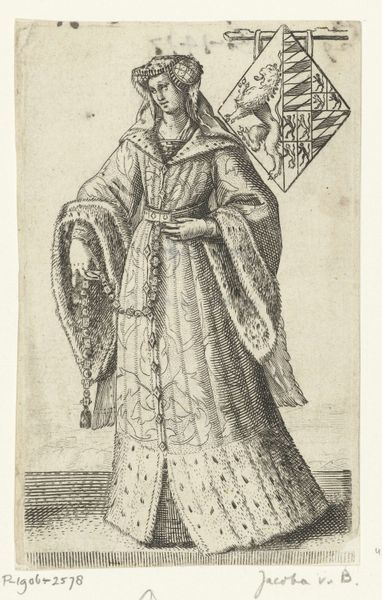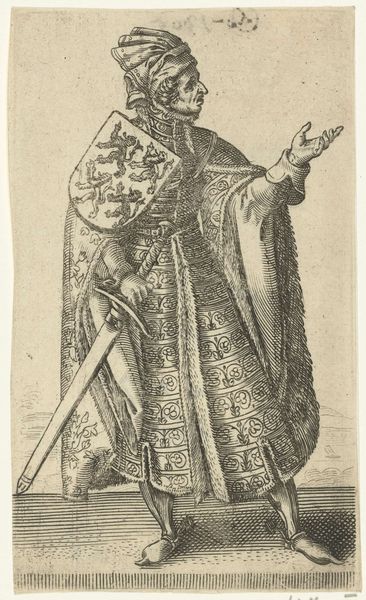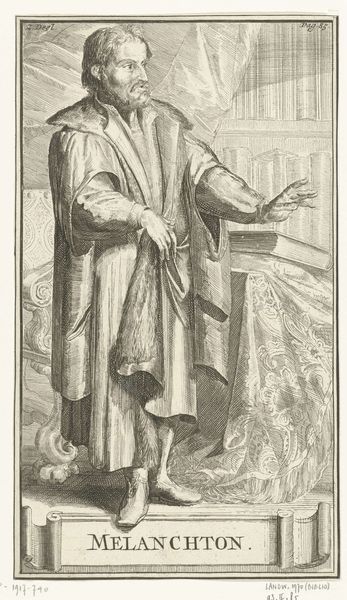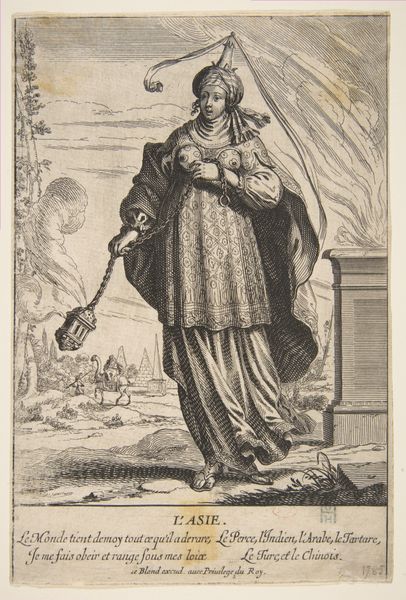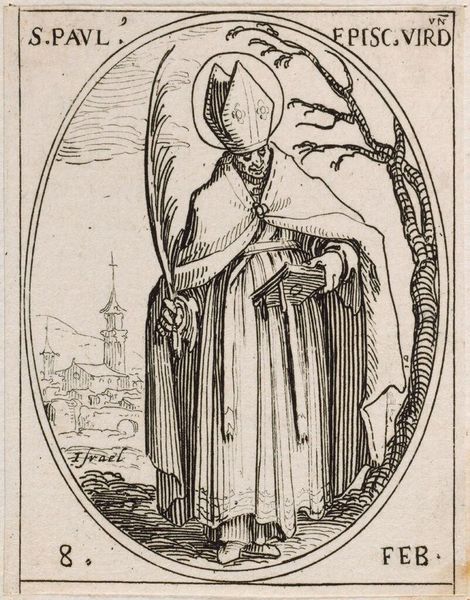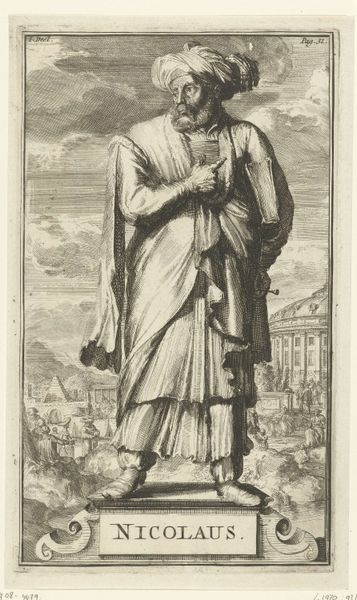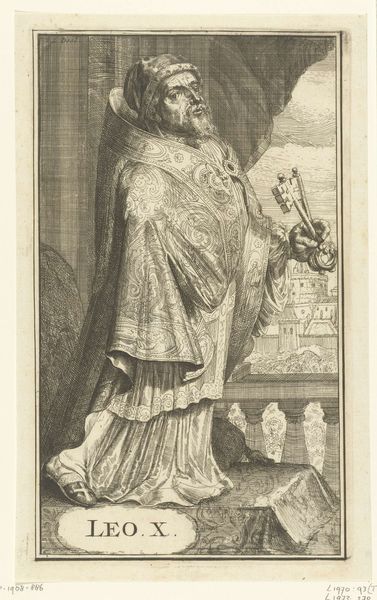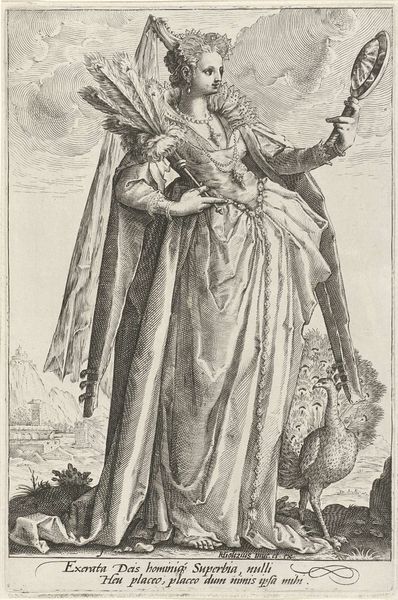
engraving
#
portrait
#
baroque
#
old engraving style
#
figuration
#
personal sketchbook
#
line
#
history-painting
#
engraving
Dimensions: height 270 mm, width 160 mm
Copyright: Rijks Museum: Open Domain
This print of Photius Iconoclasta was made by Romeyn de Hooghe, sometime between the late 17th and early 18th century. It's made using engraving, a meticulous process of incising lines into a metal plate, which is then inked and pressed onto paper. The image's power lies in the tension between the graphic precision of the engraved line and the opulent textures it describes. Look closely, and you'll see the artist used hatching and cross-hatching to create the illusion of light falling across the fabrics and architectural ruins in the background. The level of detail is intense, requiring immense skill and patience. Engraving like this was central to the print industry. It allowed for the mass production of images, fueling the spread of ideas and information. In this case, the print presents Photius as an imposing figure, his stance and attire conveying authority. Yet, by labeling him an "iconoclast," the print also engages with complex debates around religious imagery and its power. De Hooghe’s print reminds us that even seemingly simple images are the result of skilled labor, careful choices, and broader cultural conversations.
Comments
No comments
Be the first to comment and join the conversation on the ultimate creative platform.
